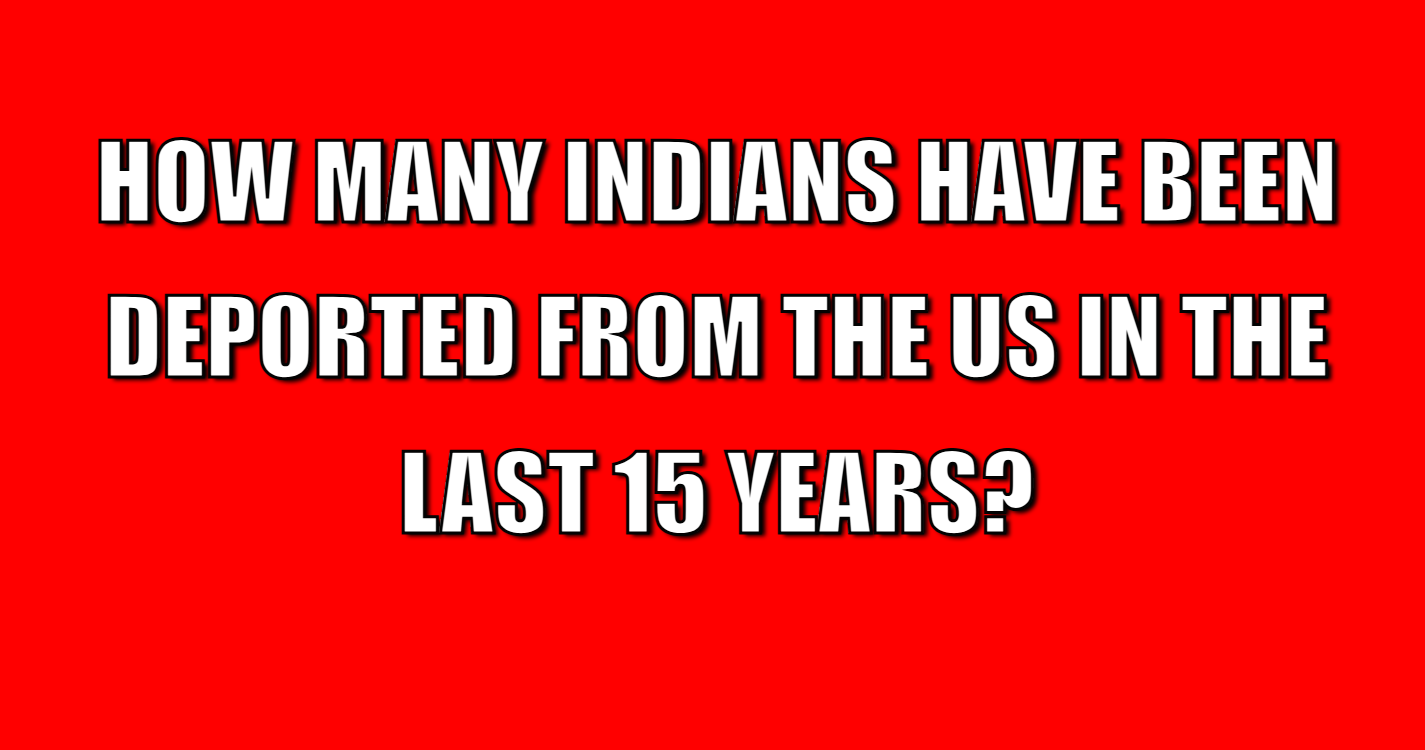Over the past 15 years, the United States has deported thousands of Indian nationals due to various immigration violations. External Affairs Minister S. Jaishankar recently addressed the matter, sharing detailed data and offering insights into the deportation process. This article provides an overview of the number of Indian deportations, government actions, and the challenges faced by deported individuals.
The Numbers and Timeline
Between 2009 and 2024, a total of 15,756 Indian nationals have been deported from the United States. These deportations primarily stemmed from violations such as overstaying visas, illegal entry, or other breaches of U.S. immigration laws.
Recently, in early February 2025, the U.S. deported 104 Indian migrants who were accused of immigration violations. Upon arrival in India, they were met with questions and concerns about their treatment during the deportation process. Opposition lawmakers raised alarms over the conditions in which these individuals were deported.
The number of deportations saw significant spikes in 2019 and 2020 due to stricter immigration policies enforced by the Trump administration. The deportations declined in 2021 and 2022, possibly due to the global impact of the COVID-19 pandemic. However, in 2024, the number of deportations surged again, raising further discussions about U.S. immigration policies and their impact on Indian nationals.
Government’s Stance on Deportations
In response to concerns raised in the Indian Parliament, External Affairs Minister S. Jaishankar clarified that deportations from the United States are not a new phenomenon. The U.S. has been carrying out deportations for many years, and this policy applies to all countries, not just India.
Jaishankar emphasized the Indian government’s commitment to cracking down on illegal migration. He said:
“The process of deportation (by the US) is not new… it has been there for years. This is not a policy applicable to only one country. Our focus should be on the crackdown on illegal migrants… We are engaging with the US to ensure deportees are not mistreated.”
India’s Ministry of External Affairs (MEA) has consistently addressed the issue of illegal immigration and has sought to ensure that deportees are treated with respect and dignity during the deportation process.
Why Are Indian Nationals Deported from the US?
Indian nationals face deportation for several reasons, primarily related to violations of U.S. immigration laws. Some of the most common reasons include:
- Overstaying Visas: Many individuals remain in the U.S. past the expiration of their visa, which leads to their illegal status.
- Illegal Entry: Some individuals enter the U.S. without proper documentation or authorization, resulting in their deportation.
- Criminal Activity: Deportations can also occur if the individual is involved in criminal activity while in the U.S.
- Immigration Violations: Various other violations of U.S. immigration laws may also lead to deportation.
The Challenges Faced by Deportees
Deported individuals often face a host of challenges upon their return to India. These challenges can include:
Financial Loss
Many deported individuals have invested large sums of money to migrate to the U.S., often through unauthorized channels such as immigration agents who promise illegal entry. After being deported, these individuals are left with little financial resources, which can lead to personal and family distress.
Emotional and Social Stigma
Being deported can lead to emotional trauma for individuals, as it can be seen as a personal failure or embarrassment. There is also the societal stigma that often accompanies deportation, which can affect the individual’s reintegration into society.
Rebuilding Lives
Deportees often return to India without any job prospects or social support. Restarting life in their home country can be an overwhelming and difficult process, especially after spending significant time abroad.
Government’s Role in Supporting Deportees
The Indian government plays an important role in supporting deported individuals. While the primary responsibility lies with the U.S. authorities in handling the deportation process, the Indian government has been actively involved in ensuring the humane treatment of deportees during their journey back to India.
The Ministry of External Affairs (MEA) has stated that it is in regular communication with the U.S. to ensure that Indian nationals are treated fairly and humanely throughout the deportation process. In addition, the government has pledged to assist deported individuals with reintegration efforts upon their return.
Frequently Asked Questions (FAQs)
1. Why are Indian nationals deported from the United States?
- Indian nationals are often deported due to violations of U.S. immigration laws, such as overstaying visas, illegal entry, or involvement in criminal activity.
2. How many Indians have been deported from the U.S. in the last 15 years?
- A total of 15,756 Indian nationals have been deported from the U.S. between 2009 and 2024.
3. What steps is the Indian government taking to address deportation concerns?
- The Indian government has expressed its commitment to ensuring the humane treatment of deported individuals. It is also engaging with the U.S. to prevent mistreatment and is focused on curbing illegal migration.
4. What challenges do deported individuals face upon their return to India?
- Deportees often struggle with financial difficulties, emotional distress, and societal stigma. Rebuilding their lives after deportation can be challenging without proper support systems.
5. Are deportations from the U.S. a new phenomenon?
- No, deportations have been a longstanding practice by the U.S. government. The process applies to all countries, not just India.
6. What is the Indian government’s position on illegal immigration?
- The Indian government is focused on cracking down on illegal migration and has emphasized that the deportation process should be handled fairly, ensuring the dignity and rights of deportees.
Conclusion
Deportations of Indian nationals from the U.S. have been a recurring issue over the years. While the numbers have fluctuated, the Indian government remains committed to addressing the underlying issues of illegal migration. Efforts to ensure humane treatment of deported individuals are also a priority. As the issue of illegal immigration continues to evolve, India’s role in supporting its deported citizens and engaging with U.S. authorities will remain critical.

